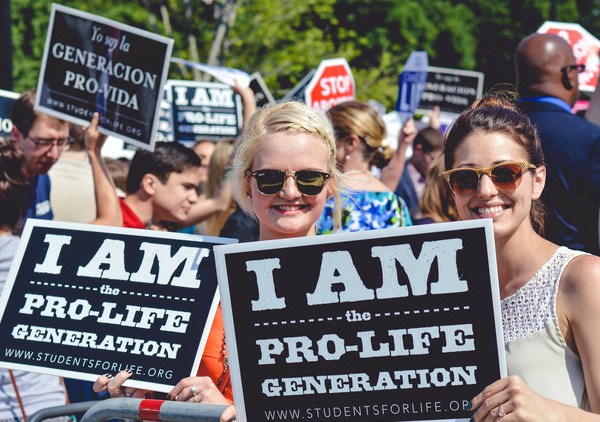The article highlighted gains in pro-life sentiment among young adults.
By: Michael J. New – nationalreview.com – February 1, 2018
Earlier this week, the Washington Post blog “The Fix” featured an article by Eugene Scott highlighting gains in pro-life sentiment among young adults. Scott cites a January 2017 Quinnipiac poll, which found that 18-to-34-year-olds were more likely than other age demographics to support a ban on abortions after 20 weeks’ gestation. This opposition to abortion among Millennials led Scott to conclude that, 45 years after the Supreme Court decision in Roe v. Wade, the “culture battle over abortion is not over.” He added that some of the pressure to end legal abortion “will come from Millennial voters.”
These gains in pro-life sentiment among young people are even more interesting than many realize. During the 1970s and early 1980s, there was a significant generation gap in abortion attitudes. The elderly were considerably more likely to oppose legalized abortion than were young people. In fact, these disparities caused some political analysts to doubt the long-term viability of the pro-life movement. But in fact, the current generation of young adults is far more skeptical about abortion than were their predecessors.
The Quinnipiac poll Scott cites is far from an outlier. Two separate polls taken in the summer of 2013 by National Journal and Rasmussen both showed that young adults were more likely than other age demographics to support a 20-week abortion ban. Similarly, recent polling has shown that young adults are more likely than other age demographics to support the Department of Justice investigation of Planned Parenthood. Furthermore, polls taken of New York residents by the Chiaroscuro Foundation found that adults under age 40 were more likely to support a range of incremental pro-life laws, including waiting periods and parental-involvement laws.
The most compelling evidence about the shift in abortion attitudes among Millennials, though, comes from the General Social Survey (GSS), which is released every two years and is widely used by public-opinion scholars. The GSS has asked the same six questions on abortion since the early 1970s. It asks whether abortion should be legal option if 1) the woman is raped, 2) there is a strong chance of a fetal defect, 3) the pregnancy poses a risk to the woman’s health, 4) the woman is low-income, 5) the woman is unmarried and does not want to marry the man, and 6) the woman is married and does not want more children.
During the 1970s and 1980s, young adults were more likely than other demographics to think abortion should be a legal option in each of these circumstances. Starting around 2000, though, there was a significant shift in the attitudes of young adults. The GSS surveys taken after 2000 consistently show that young adults are actually the age demographic most likely to oppose abortion as a legal option in nearly all of these circumstances.
Even so, there are a few reasons for pro-lifers to be concerned. Young adults today are supportive of incremental pro-life laws and are more likely to oppose abortion in a range of circumstances, but they remain somewhat reluctant to identify as “pro-life.” Furthermore, polling data show that Millennials have not been particularly likely to support pro-life candidates or pro-life ballot propositions. That said, it is heartening to see the Washington Post accurately reporting about the significant gains in pro-life sentiment among young adults.
To see this article, click read more.
Source: Abortion & Millennials: Washington Post Highlights Pro-Life Young People
 Listen Online
Listen Online Watch Online
Watch Online Find a Station in Your Area
Find a Station in Your Area










 Listen Now
Listen Now Watch Online
Watch Online
